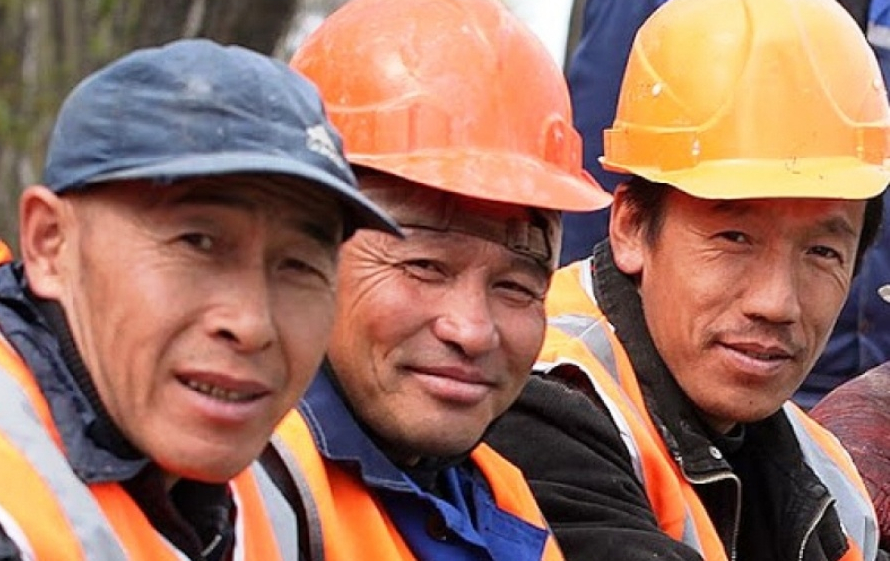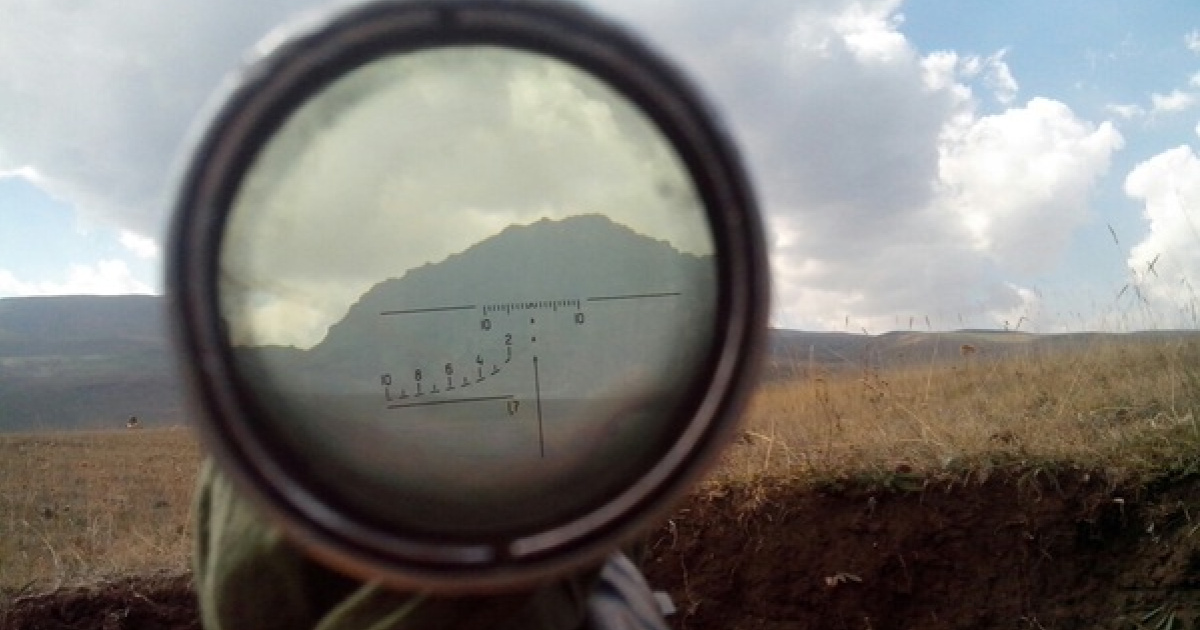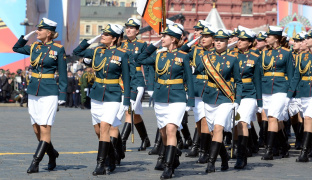The trade blockade with the occupied territories is pushing Russian supervisors to seek economic solutions for the maintenance of life of the "republics".
One of the declared options – to redirect trading vector from Ukraine to Russia. What could be easier? But this is only at first glance. However, the economic analysis indicates that they really cannot count on this option.
Coal and metal are the basic products that Donbass can offer to "brotherly" Russia. There is nothing else. For these 3 years the "DPR" and "LPR" have not turned into a new "Silicon Valley" under the strict guidance of A.Zakharcheko I.Plotnitsky for the past 3 years.
But the "big brother" has so much of his own coal and metal that he just does not know where to export it in the context of the global overproduction.
Steel puzzle
As it is known, the second wave of the crisis in the steel industry began in 2015. The slowdown in economic growth in China led to reduction in consumption of rolled metal in this country.
The volumes of housing construction ceased to grow, the banks stopped lending many projects.
Then the Chinese began exporting all volumes of steel, which the domestic market could not "swallow".
The result was not long in coming: since China produces about half of the metal in the world.
For example, at the end of January 2017, from the global volume of 136,51 million tons China produced 67,2 million tons. For comparison: Russia produced 6.18 million tons, Ukraine – 2,1 million tons.
Therefore, if in May 2014 the hot-rolled metal was sold at $700/ton on the New York Mercantile Exchange, in June 2015 the price was $450/ton.
The armature in the EU, which in January 2015 was worth $499/ton, in December was already sold for $325/ton. The same situation was seen across all regions and commodities.
For Russia, closing the top 5 of world's largest steel producers, it was a very painful blow.
And, of course, it was no accident that the Prime Minister Dmitry Medvedev spoke about the need of government decisions to stimulate domestic demand at the industry meeting in Chelyabinsk in July 2015.
General director of Severstal group Alexey Mordashov replied: "Of course, our main hope is connected with the growth of domestic consumption, which we expect to grow at even faster pace - by 18% in 2017. First of all, due to the construction sector and the production of household appliances".
Deputy Minister of Industry and Trade of the Russian Federation Alexey Rakhmanov said that the real drive for industry growth could be the implementation of major domestic infrastructure projects, including those with the state support.
However, the announced plans have not been implemented and the hopes of the Russian metallurgists did not come true (if they existed at all). Because you should always portray the enthusiasm for the high command, but in the working environment thoughts can be expressed more openly.
In February 2015, Maxim Lapin, the business development director of the group Magnitogorsk Metallurgical Works estimated the future prospects of the industry as poor at a conference in Moscow.
"If the Russian economy is in stagnation, the Russian market of steel products will take the current situation with a slight negative volume factor", - said the representative of the MMW group.
He estimated that at near-zero GDP growth in Russia in 2015-2018, the average annual steel consumption in 2014-2018 will decline by 2,1%.
We will recall that Russia's GDP decreased by 0,2% by the end of 2016, according to preliminary data from Rosstat service. Ministry of Economic Development predicts a decline of 0,6%.
If we take the nominal GDP of the Russian Federation, there is even a sadder picture. If in 2013 it was $2,2 trillion, in 2016 it was only $1,28 trillion.
I.e. for some 3 years, Russia's economy collapsed in value terms by almost 2 times.
No wonder that analysts of the same Severstal in their stock survey predicted a drop in demand for the metal in Russia by 10% for 2016. By the way, the current year is not very optimistic as well.
According to the forecasts of the Novolipetsk Steel, the demand for steel in 2017 will remain at the previous year's level – within +/- 1%.
It is obvious that under the decline in sales of local steelmakers, the Russian government will sacrifice a lot, if it agrees to open the market for the "DPR-LPR" companies.
For example, for Alchevsk Iron and Steel plant, Enakieve and Makiivka metallurgical plants, Donetskstal plant.
In this regard, the Russian media reports about the Kremlin's decision to begin the deliveries of coal for coke to the "DPR" looks either like a big bluff or simply as real stupidity.
After all, the problem of providing enterprises on the uncontrolled territory with raw materials is secondary. They should start with the deciding what to do with the finished product afterwards.
As OstroV previously pointed out, the "interim administration" will not be able to adjust the export of the metal. Russia will not be able to provide orders for such volumes because of its market situation described above.
In addition, you should pay attention to the message of the Donetskstal close-down. On February 27, it completely ceased smelting iron process after stopping of the blast furnace.
"The reason for the close-down is the lack of iron ore. The coke was delivered from Makiivka coking plant, we had no problems with that", - the representative of the company stated.
That is, the "big brother" wanted to help Donetsk metallurgists with coal for coke, which they already had. But it somehow did not occur to them to ensure the supply of iron ore, without which the local metallurgical plants just stopped.
What is it – the usual bureaucratic stupidity or a part of a plan to destroy the rival (Ukrainian metal products compete with Russian ones on foreign markets) – everyone can decide for himself.
In any case, the fact remains: the separatists' hope for the "brotherly" Russia's help is not justified once again, as it was in the spring of 2014, when all of a sudden it turned out that the Kremlin does not need the Donbass as a part of Russia.
Coal mosaic
The situation with coal is identical to the one that happened in the metallurgical industry and is discussed above. To realize this fully, it is enough look at the Russian statistics.
At the end of 2016, the deliveries of Russian coal to the domestic market fell by 5% to 166,8 million tons. Coal imports collapsed even more – by 10,6%, to 20,46 million tons.
There was a significant decrease in coal consumption associated with the general crisis in the Russian economy. At the same time, coal production increased by 3,2% to 385,4 million tons.
Growth was driven by exports, which recorded an increase of 9%, to 165 million tons. It turns out that almost half of the coal mined in Russia is sold abroad.
And if to oblige Russian energy enterprises to purchase it from the "DPR-LPR", it means a reduction of production at local mines.
Will the Russian government want to leave their miners without work just to help their colleagues from the territory with an uncertain status?
Cynical as it is, but to send there the military "on vacation" is much cheaper and easier than to jeopardize the coal industry in their own country. That is why almost the entire amount of coal mining in the "DPR"-"LPR", except for the coal for own needs, was delivered at the power stations of Ukraine, and not the Russian Federation, all three years after the "Russian Spring".
And if the Ukrainian power industry will refuse this coal now or will be helped to refuse – the coal industry on the uncontrolled territories will be like a person without the air.
It is also impossible to sell this coal for export because of its non-competitiveness in comparison with the Australian, American, Russian, and even Polish.
The fact is that the Donbass coal has lower caloricity and higher content of harmful substances.
So the coal export from Ukraine was minimal even in the pre-war period of peace. For example, the highest production was registered in in 2012 – 85,7 million tons. The export amounted to 6,1 million tons.
So if almost every second ton of coal was sold to foreign clients in Russia, then it was about every fifteenth in Ukraine.
As the phrase goes, feel the difference. That is all that is needed to know about the competitiveness of the Donbass coal in foreign markets. Conversation about the coal export from the "DPR"-"LPR" can be considered closed.
In this regard, the initiative of the leaders about the "nationalization" of the coal producers and iron and steel enterprises of R.Akhmetov and S.Taruta from March 1 this year seems a gamble that is aimed more at the PR effect than at the real economic result.
PR nationalization
For example, the head of the "DPR" A.Zakharchenko stated on March 1 that raw material for the grabbed Ukrainian enterprises will be purchased from Russia and the end product will also be sent there.
Above mentioned economic analysis make it clear that this idea is utopian. But there is no need to get involved in the maze of statistics and calculations, just have a look at the success of the new authorities in a specific example.
Let us take at least the same Donetsk Electrometallurgical Plant (DEMP). This enterprise belonged to various Russian agencies businesses since 2008.
The last official owner was Mechel Russian group that tried and failed to sell it even before the war.
And finally it just gave up on it, presenting it, in fact, to the authorities of the "DPR". It became known about the introduction of "temporary administration" in DEMP as far back as July 2016.
The enterprise was granted the status of "state-owned" in the "DPR" and was renamed as Yuzovsky Metallurgical Plant.
The media controlled by separatists cheerfully reported later that repairmen returned to the empty workshops of YMP and major equipment is being prepared for start-up.
It was reported with reference to the "temporary administration" that this should happen in December before the New Year. There were serious doubts even then that the good intentions would be realized…
So, March 2017 is already in the calendar, but DEMP continues to be closed down. The "Minister of Industry of the DPR" Alexander Granovskiy was there just on March 1. He assured that start-up of the enterprise will be held in late May - early June. So even if it happens, it appears that DEMP remained closed down at least one year after the expropriation.
And that is all that is needed to know about the management talents in the economic sphere of the current authorities in Donetsk. All the more so it is highly unlikely that DEMP will start its work closer to the summer.
The terms of its start-up will likely be extended again as it was last time. And so on endlessly. The same thing is waiting for the "nationalized" plants and mines.
At the same time people of R.Akhmetov do not really regret about the loss of assets on the uncontrolled territories. Metinvest holding that manages his metallurgical business placed a message on the Irish Stock Exchange on March 1.
It states that the total losses of Metinvest's enterprises on the uncontrolled by Ukrainian authorities ATO zone for 2014-2016 were amounted to $214 million.
Put simply, so much the better it is for us. The company is much more concerned now with the relations with creditors.
So the message stresses that in case of any expropriation Metinvest does not expect from it the negative impact on the restructuring of its debt, the total amount of which is estimated at $2,29 billion.
The head of the board of directors of Industrial Union of Donbass corporation S.Taruta is also easy-going about the loss of Alchevsk Iron & Steel Works.
Six months ago he said on the air of one TV channel that the future of AISW depends on the conflict settlement in the Donbass.
"Of course, huge amounts of money (about $2 billion) were invested in the modernization of AISW in due time, and now it could be the most advanced enterprise of Ukrainian metal industry, but what can we do – it happened so", - Serhiy Taruta philosophically concluded.
It is possible to agree with him to some extent – in case of ignoring the aspect of social responsibility of the enterprise's owner for sustenance of the whole city.
It is much more important for ISD business now to keep running Dnieper Metallurgical Combine in Kamianske (formerly Dniprodzerzhynsk), which became at risk of stopping because of to the trade blockade of the Donbass.
The fact is that DMC got coke from the uncontrolled territory – from Alchevsk Coking Plant owned by ISD. It is obvious that now these supplies will have to be filled at the expense of import.
Yes, this leads to the rise in price of metal smelted in DMC and further supplied to the metalworks of ISD in Poland and Hungary.
So it is difficult to say for sure whether the group management will cope with the task to stay in the market under the conditions of complete loss of the raw material component.
However, taking into account the rise in prices for rolled metal products in 2016 – more likely yes than no. The Russians do not need the coke from Alchevsk any way: they have their own in plenty.
Each and every metallurgical group in the Russian Federation has its own capacities for the production of coke and even exports it.
So it turns out that the expropriation of the largest industrial enterprises of the Donbass will lead to their ultimate degradation. And it will in any case be the only real result of the current PR action.
No matter how much the reports about the plans of the authorities of the "DPR" to hand the control over the grabbed assets over the escaped oligarch Serhiy Kurchenko and his team are.
First of all, this group has rather complicated relations with the current owners of Donetsk and Luhansk also because of the petrol and diesel fuel supplies.
I remember A. Zakharchenko accused S.Kurchenko of speculation and even announce him persona non grata on the controlled territory. And now, according to the latest intercepts of the Security Service of Ukraine, this conflict is not forgotten.
And what economic effectiveness can be expected from the "managers" who have gathered wealth during the reign of Yanukovych on the petrol and diesel fuel contraband import to which the Prosecutor General's Office of Ukraine and Security Service of Ukraine Customs consciously turned a blind eye?
It was the core business of VETEK group of S.Kurchenko from the back of whom the sons of the escaped President and Prosecutor General - O.Yanukovych A. Pshonka peek out.
The control of the "government enterprises" in the "DPR"-"LPR" may be put in charge of any field commander of the militants with no less success. What can it hurt? – because it hits rock bottom now.
Vitaliy Krymov, OstroV




